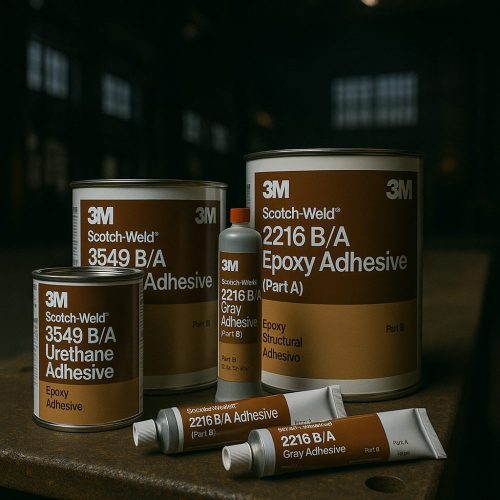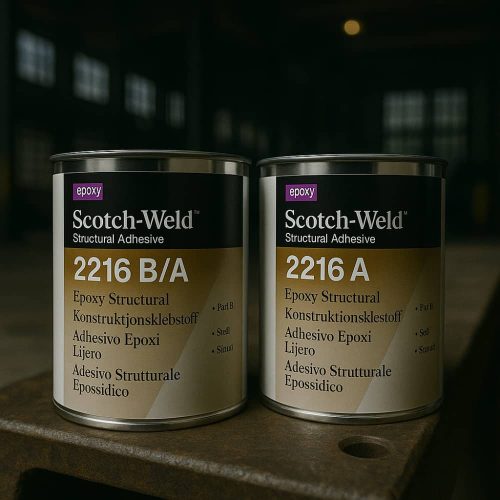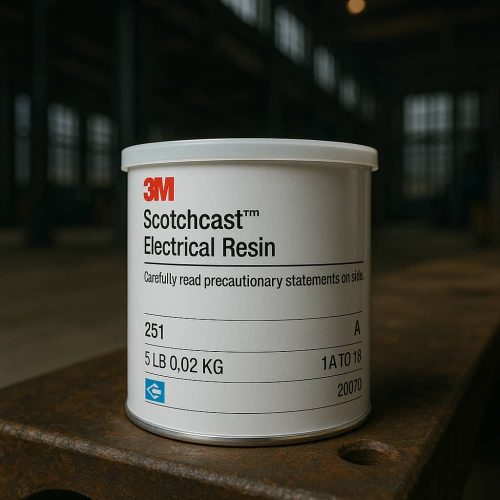La two-component resin is a resin system made up of two elements, a base and a hardener, which, when mixed, react chemically to form a solid material or elastomer.
This technology provides the mechanical, chemical and thermal performance required for the most demanding industrial applications.
Unlike single-component resins two-component resins offer a better control of setting times and final properties (hardness, flexibility, resistance) and can be customised for casting, bonding, encapsulation and protection.
They are essential in sectors such as electronics, construction, energy, boating and aeronautics.



Thanks to their wide range of applications, the industrial bi-component resins make it possible to secure assemblies, improve component protection and facilitate industrial implementation.
Versatile, rigid or semi-rigid, it offers a wide range of excellent mechanical and thermal resistance. Used for bonding, coating, composites or moulding.
👉 Discover our two-component epoxy resins
Flexible or semi-rigid, perfect for potting of electronic componentsIt can be used for a wide range of applications, including flexible bonding and impact protection. Excellent resistance in damp environments.
👉 Discover our two-component polyurethane resins
ADDEV Materials offers you solutions tailored to your performance, process and profitability constraints.
Looking for a two-component epoxy resin for structural bondinga polyurethane resin for pottingor a two-component silicone resin for flexible moulding ?
📩 Contact our team to obtain a personalised recommendationa technical sample or a professional quote.
Epoxy offers high rigidity and thermal resistance, while polyurethane provides flexibility and good behaviour in damp conditions.
This varies from 5 minutes to 24 hours depending on the formulation. The choice of hardener and temperature has an impact on setting time.
Yes, some formulations (epoxy and polyester) are designed to be UV and weather resistant. Always consult the technical data sheet.
Metal, plastic, composite, wood, ceramic... With the right preparation, two-component resins adhere to most materials.
Yes, an automatic mixer or rigorous manual stirring is required to guarantee polymerisation performance.